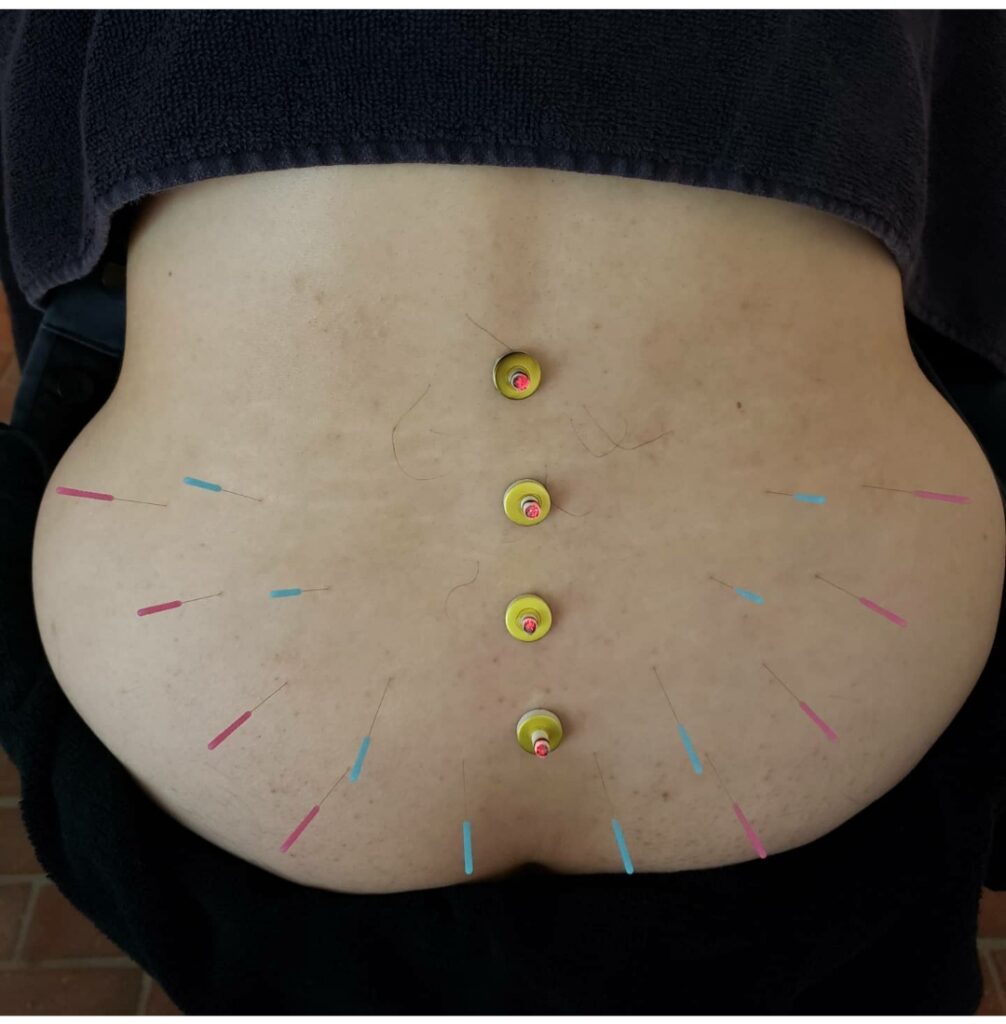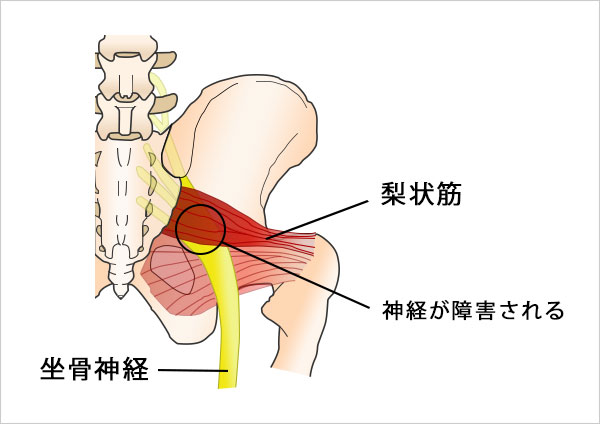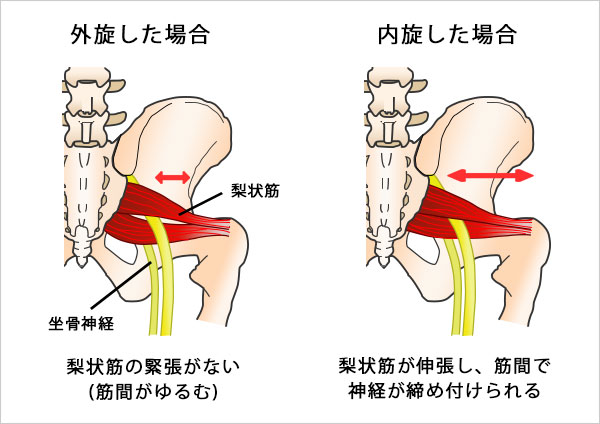梨状筋症候群
梨状筋はお尻の深い所にある筋肉で、その下を坐骨神経が通っています。その梨状筋が硬くなってしまったり緊張してしまうことで坐骨神経を圧迫し、症状を引き起こす病態を「梨状筋症候群」と呼び、坐骨神経痛を引き起こす原因のひとつとして知られています。梨状筋が硬くなる原因は様々で、日常生活やスポーツなどで繰り返し負担がかかった場合や、股関節の異常による場合など多岐に亘りますが、はっきりとした原因が思い当たらないことも多くあります。梨状筋症候群の症状は臀部痛と、坐骨神経の走行に沿った痛みやしびれです。すなわち、太もも、すね、ふくらはぎ、足の甲、足底、足の指の痛みやしびれです。特に座っているとき、階段の上り下り、ランニングなどのときに痛み、しびれが出ます。腰痛はあまり出ず、お尻が痛いのが特徴です。鍼灸治療では絞扼している筋をゆるめ、座骨神経にも鍼を刺して疼痛緩和します」
The pisiform muscle is a muscle located deep in the buttocks, under which the sciatic nerve runs. The condition in which the pisiform muscle becomes stiff or tense, putting pressure on the sciatic nerve and causing symptoms is called ‘pisiform muscle syndrome’ and is known as one of the causes of sciatica. There are various causes of pisiform muscle stiffness, including repetitive strain from daily life or sports, or from hip abnormalities, but often no clear cause can be identified. Symptoms of pisiform muscle syndrome are buttock pain and pain or numbness along the sciatic nerve travel. This means pain and numbness in the thighs, shins, calves, back of the legs, soles and toes. The pain and numbness occur particularly when sitting, going up and down stairs and running. Back pain is less common and is characterised by pain in the buttocks. Acupuncture loosens the strangulated muscles and acupuncture is also used for pain relief in the sciatic nerve





